|
As we continue to navigate uncertain times, Assistant Director of Administration Monica Thom Konschnik shares how we can learn from the life and example of St. Monica during COVID-19.
For more reflections on St. Monica, we invite you to read St. Monica and the Power of Intercessory Prayer and Motherhood and St. Monica. 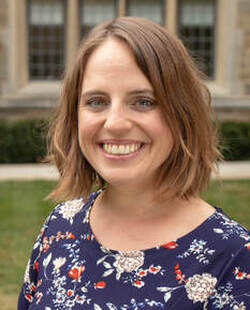
Monica Thom Konschnik is the Assistant Director for Administration for the Catholic Apostolate Center.
0 Comments
“Do not be troubled if you do not immediately receive from God what you ask him; for he desires to do something even greater for you, while you cling to him in prayer” -Evagrius Ponticus There are often times in our lives when God doesn’t seem to be answering our prayers. We pray repeatedly for certain people or intentions, sometimes for days, months—and even years—but our prayers seem to go unanswered. When nothing seems to be happening, it is easy to feel weary and disheartened. For the past several years, my husband and I have been praying for a specific situation that has only gotten more frustrating and bleak. At Mass during the first week of the Lenten season, I heard the words of Jesus to his disciples, “Ask and it will be given to you; seek and you will find; knock and the door will be opened to you” (emphasis added). After praying with this reading throughout the week, I heard the following words in my heart: “keep knocking.” I took this as a reminder to persevere in prayer. Whether or not we think God has answered our prayers does not change the fact of who he is: a good Father who knows what we need. Our intention to pray should not spring solely from the fact that we need something, but from our desire to strengthen our relationship with God and to be transformed and conformed to his will in the process. The Catechism summarizes it well when it says, “prayer is a battle” (2725). I’ve found this to be true on multiple fronts. First, it’s a battle to even set apart time to pray each day. It often seems that I don’t have time or that there are so many more important things to do. This year for Lent, I’ve decided to set apart the first 10-15 minutes of my children’s naptime for quiet prayer. This puts to practice a fact I already know intellectually: prayer gives my days purpose and meaning. Another opponent we fight in the battle of prayer is distraction. I often find that as soon as I commit to prayer time, my mind wanders or suddenly races with things to do. It’s normal to experience distraction in prayer. When this happens, simply bring yourself back to the present and don’t give the distraction too much attention. Other times, my prayer life seems dry and dull. It feels hard to pray and I don’t even have words to say. Additionally, we can experience something that might be the hardest of all: seeming silence in response to our prayers. The Catechism extrapolates, “Our battle has to confront what we experience as failure in prayer: discouragement during periods of dryness…disappointment over not being heard according to our own will…To overcome these obstacles, we must battle to gain humility, trust, and perseverance” (2728). Anything of merit is proven in times of hardship: our commitment to marriage, our love for our family, our life of faith, our dedication to a cause or ideal. We are unable to excel in an endeavor if we’ve never practiced. That is why my husband jokes that he will never pray for patience, because he doesn’t want to be presented with opportunities that will invite him to grow in that particular virtue. The Catechism speaks on this as well, “Filial trust is tested - it proves itself - in tribulation” (2734). Occasionally, we might not receive an answer to prayer immediately because the repeated action of prayer will make us grow in some way: in charity, in perseverance, in faith. The Catechism goes on to ask, “Are we asking God for ‘what is good for us?’ Our Father knows what we need before we ask him, but he awaits our petition because the dignity of his children lies in their freedom. We must pray, then, with his Spirit of freedom, to be able truly to know what he wants.” (2736) Perhaps we are praying for something that is not good for us. Or, even more likely, for something that is not best for us. Our prayers may be pure, well-intentioned, and holy, but may only partially supply what we, or the people we’re praying for, need. We often can only see part of the whole picture; our ways are not God’s ways. An example of this can be found in the story of St. Monica, who prayed for her son, Augustine, for 17 years before he was baptized and entered into the Catholic Church. In the midst of her prayers for the conversion of her son, Augustine snuck out of her care and escaped to follow his worldly pursuits in Rome. At the time, this was devastating to Monica, who only saw his continued descent into a life of sin. But it was in Rome that St. Augustine met St. Ambrose—the spirit-filled bishop who was a major catalyst in Augustine’s conversion. This example shows a good prayer that was seemingly unanswered. God did not seem to be “listening” to Monica’s pleas for her son to stay with her. Instead, he used a hopeless situation to bring about an even more powerful encounter that led to Augustine’s salvation. God never fails to hear our prayers. Said again, our prayers are always heard. By praying for something repeatedly, we grow in our charity for others, in our perseverance, and in our faith. St. Augustine himself reminds us of this, “God wills that our desire should be exercised in prayer, that we may be able to receive what he is prepared to give.” The more difficult prayer is not to pray for what we want or think we want, but to pray for God’s will to be done, as Jesus teaches us in the Garden of Gethsemane. The goal of prayer is a deepened relationship with and the love of God. We need prayer because we need God. Prayer is meant to change and transform us to be more like Christ, who lived in complete unity with the will of His Father. As the Catechism reminds us, “Against our dullness and laziness, the battle of prayer is that of humble, trusting, and persevering love” (2742). As we continue to grow in our understanding and practice of prayer this Lent, I invite you to persevere in the “battle” in order to say with Christ, “not as I will, but as you will.” For more resources on Prayer, please click here. My own faith journey has been greatly influenced by the Augustinians – a religious order of friars, joined by seculars and friends, who follow the Rule of St. Augustine. Simply put, Augustine’s Rule invites men and women to “be of one mind and heart on the way to God… [to be] travelers on pilgrimage together, wherein Christ is our constant companion, as well as our way and our goal.” St. Augustine of Hippo is one of the best-known saints in the Catholic Church. Although he was born in the 4th Century, his writings—like Confessions and The City of God—continue to inspire spiritual seekers to this day. For his contributions in theology, Augustine is also considered a Doctor of the Church. Beyond these accolades, Augustine’s personal character and self-proclaimed “restlessness for God” have inspired numerous men and women to take up his search for truth. One of these people is St. Nicholas of Tolentine, whose feast we celebrated on September 10th. Growing up in an Augustinian parish in Staten Island, NY, I knew there were at least a few saints from the Augustinian family, including: Augustine’s mother, St. Monica; St. Rita of Cascia; St. Thomas of Villanova (there’s a basketball-loving university named after him!); and St. Clare of Montefalco. I also knew of a church in the Bronx named St. Nicholas of Tolentine, but I must admit, I knew very little about him. A few years after college, and after some time away from my family parish, I found myself in a state of constant restlessness and spiritual doubt. Desiring a change, I reconnected with my past by joining the Augustinian Volunteers, a year-long volunteer program in which I traveled across the country, lived in intentional community, and learned about the greater Augustinian family. This experience confirmed a special place in my heart for the Augustinian saints, and I have been pleased to learn more about this man Nicholas who “sought for God by means of a deep interior life… [and] the practical love of neighbor.” According to a brief biography, Nicholas “was a simple priest and Augustinian friar who touched the lives of many.” Born to a poor family in Italy in the year 1245, Nicholas became an Augustinian friar at an early age (likely 16 or 18) after being inspired by another Augustinian preacher in his hometown. The Augustinian history states Nicholas was “full of charity towards his brother Augustinians as well as towards the people to whom he ministered. He visited the sick and cared for the needy. He was a noted preacher of the Gospel. He gave special attention to those who had fallen away from the Church. People considered him a miracle worker.” Nicholas fasted often and received visions during his lifetime, including that of angels repeating “to Tolentino,” where he moved and worked for the remainder of his life. In the tradition of Augustinian hospitality, Nicholas is said to have been over-generous in his duties feeding the poor at his monastery; so much so that his superiors asked him to hold back a bit. Nicholas (like many medieval saints) is linked through legend to miraculous incidents involving food. Once after weakening himself through prayer and fasting, he had visions of The Blessed Virgin and St. Augustine imploring him to eat some bread marked with a cross and dipped in water. This bread immediately regenerated his strength, and he went on to give the same bread to the ill while invoking Mary – thus beginning the Augustinian custom of distributing Saint Nicholas Bread. Another legend, perhaps inspired by contemporary Franciscan values and love of animals, tells of Nicholas vowing not to eat meat the rest of his life. When served a roasted fowl, Nicholas prayed and the bird returned to life, flying away from the table. Nicholas died on Sept. 30, 1305, and was canonized by Pope Eugene IV (also an Augustinian) in 1446. He was the first Augustinian to be canonized. At this ceremony, Nicholas was credited with about three hundred miracles. St. Nicholas is typically depicted in the black Augustinian habit, often with embroidered stars or a sun emblazoned on his chest, which seems to point to the great quote from his inspiration, St. Augustine: “Men go abroad to wonder at the heights of mountains, at the huge waves of the sea, at the long courses of the rivers, at the vast compass of the ocean, at the circular motions of the stars, and they pass by themselves without wondering.” In these days in which so many of us are searching for answers, let us pause to remember a kind saint who encouraged patience and prayer as ways of knowing and being. To learn more about faith-based service, please click here. In the most beautiful chapter of the best work of one of the greatest Catholic theologians - in my opinion, anyway - Saint Augustine tells the story of his mother, Saint Monica.
Saint Monica was born to a good Christian family but she had little luck in marriage. She was married at a young age to a man named Patricius, and they had three children together. He was a pagan, he was angry, and he was unfaithful. But Monica was patient and merciful. Despite Patricius’s evil ways, she served him with devotion, mercy, and constant prayer. At the end of his life, only one year before he died, her daily prayer and kindness were rewarded and Patricius was baptized into the faith. But Patricius’s conversion did not end Monica’s sorrow. Augustine was seventeen when Patricius died, and his conduct was worse than his father's. He was brilliant, but lazy. He drank excessively, stole, and lived promiscuously. The year his father died, Augustine fathered a son of his own out of wedlock. Despite Monica’s urging, Augustine refused to settle down and get married. Worse still, Augustine rejected his mother’s faith and joined the Manichean cult. But Monica never ceased her kindness and prayers. She followed Augustine as his teaching lead him to Carthage, to Rome, and to Milan. In Milan, Monica met Saint Ambrose, then a bishop. In serving in his church, she came to know Ambrose well, and Ambrose came to understand her sorrow for her son. He comforted her, saying, “Surely the son of so many tears will not perish.” Her prayers were eventually answered. A year before she died, Augustine was baptized. He went on to become one of greatest saints in history. As she lay dying, Monica told her son that her life’s work was complete. “One thing there was, for which I desired to linger a little while in this life, that I might see you a Catholic Christian before I died. God has granted this to me in more than abundance, for I see you his servant, with even earthly happiness held in contempt. What am I doing here?” (pg 223). Saint Monica gives us a powerful example of the influence of intercessory prayer (CCC 2634-2636). Monica did not use words to persuade Augustine to convert. Instead she led by example, living with kindness and praying on his behalf. For thirty-two years she patiently prayed for his conversion, and God rewarded his faithful servant. We are called to do the same. The Letter of James says, “Pray for one another, that you may be healed. The fervent prayer of a righteous person is very powerful” (James 5:16) and Jesus tells us, “Amen, amen, I say to you, whatever you ask the Father in my name he will give you.” (John 16:23). We are all sinners and we all need God’s intercession. But we are not alone. God desires us to pray for our own forgiveness and for the forgiveness of others. That is why we pray “forgive us our trespasses” and not “forgive me my trespasses.” People are difficult. We treat each other with anger, unfaithfulness, and unrepentance. But rather than meet those that harm us with our own shortcomings, let us instead follow Saint Monica’s example and live a life full of kindness and prayer. Pray for God’s help, pray for the forgiveness and conversion of others, and Saint Monica, pray for us. St. Monica’s feast day is celebrated on Monday, August 27, 2018. August 27th marks the feast of St. Monica, mother of St. Augustine of Hippo. St. Monica spent seventeen years praying for the conversion of her son, whose reputation for hedonism and religious skepticism preceded him. St. Monica is said to have wept for her son Augustine every night. Her devotion to him is an example of what it means to love unconditionally, even when it hurts. As a new mother, I have spent many hours reflecting on the mystery of unconditional love and have recorded some of my thoughts below. Let us turn to St. Monica when our hearts are weak and we need help loving as God calls us to love. St. Monica, pray for us. “This is my body, which will be given for you” (Luke 22:19). Christ’s words at the Last Supper never fully resonated with me until I became a mother. From the moment of her conception, I gave up my body to my daughter. Baby books, friends, and other women warned me of the physical tolls of pregnancy--the aches and pains, the nausea, the swollen feet, the labor--but I was unprepared for the physical sacrifices afterward. My body is not my own. It is at service to a squirmy, snorty, sweaty being who doesn’t even realize how needy she is. And yet, this physical sacrifice is good and necessary. It has helped me to remember that God wants all of us. Not just our souls and intellects, but our bodies too. I am an intellectual person by nature and often use my love of study to learn about God. But learning about God and knowing God are not the same thing. Just like reading about how to ride a bike and actually climbing up on the seat are not the same. It is easy for me to pick up another historical commentary on the gospels and feel like I am improving my relationship with God. It’s hard to deny myself a second cup of coffee. It’s hard to place my phone in another room and walk away. It’s hard to lower myself onto my knees to pray, or even to sustain prayer for longer than a minute. These bodily actions are hard because they require sacrifice. And yet, I suspect the sacrifices I make for God are more important to him than whether I know if Jesus was born in cave or a wooden stable. Motherhood, too, is a bodily commitment and one that can be difficult to embrace with joy. I sacrifice my body in a small way every time I stop what I am doing to nurse my baby, or to get down on my knees and engage her in yet another game of “rub the belly, rub the belly”. Yet, as I commit to these physical tasks, I hope I also die to self a little more each day. With each physical act, with each twinge between the shoulder blades, I remind myself, that--in a much bigger way--this is what Jesus did for me on the cross. Ironically, it actually was a book that helped me to understand the beauty of bodily sacrifice. No, it wasn’t the Bible, or Pope Francis’ Amoris Laetitia, it was The Giving Tree, by Shel Silverstein. The gist of the story is that a tree continues to give and give to a boy throughout the boy's life to make him happy. First she gives him her apples so the boy can sell them for pocket money, then she gives him her branches so that he can build a house, then her trunk so that he can build a canoe. Eventually the tree is reduced to a stump and the boy hasn’t visited her in years. And yet the refrain after each gift is, “And the tree was happy.” By the end of the book, my husband found me lying on my back crying while my daughter kicked her feet unconcernedly next to me. Our conversation went as follows: “I told you not to read that book!” “It’s just so stupid! The boy is so ungrateful! The tree gave him everything and he never even said thank you. She literally let him cut down her trunk for him. It’s not fair.” “Would you do that for Elizabeth?” My answer was immediate. If motherhood has taught me anything, it’s what it means to love unconditionally. And the craziest part is that my bodily sacrifices to Elizabeth don’t even compare to Christ’s sacrifice for me. Truly, to be loved by Christ is a humbling thing. Click here for more resources on Marriage and Family. “Jesus said to his disciples: ‘Suppose one of you has a friend to whom he goes at midnight and says ‘Friend, lend me three loaves of bread, for a friend of mine has arrived at my house from a journey and I have nothing to offer him,’ and he says in reply from within, ‘Do not bother me; the door has already been locked and my children and I are already in bed. I cannot get up to get you anything.’ I tell you, if he does not get up to give him the loaves because of their friendship, he will get up to give him whatever he needs because of his persistence. And I tell you, ask and you will receive; seek and you will find; knock and the door will be opened to you. For everyone who asks, receives; and the one who seeks, finds; and to the one who knocks, the door will be opened. What father among you would hand his son a snake when he asks for a fish? Or hand him a scorpion when he asks for an egg? If you then, who are wicked, know how to give good gifts to your children, how much more will the Father in heaven give the Holy Spirit to those who ask him?”
The friend in Jesus’ parable is persistent in asking for bread. He did not immediately give up when it seemed that the answer was no. He kept asking until his friend gave him what he needed. Just as the friend did not give up, we should be persistent as well. Instead of simply saying a Hail Mary or an Our Father and then calling it a day, it is important to persevere in prayer. For the intentions that are closest to your heart, remember to pray without ceasing. It has been said that Saint Monica prayed for the conversion of Saint Augustine for thirty years. She refused to give up when all signs seemed to indicate that her prayer went unheard! In reality, God heard her prayer and helped her son to become a great saint in heaven. Just as a little child feels safe running to his father when he needs something, Jesus invites us to treat God the Father the same way. All fathers who love their children want what is best for them. God, our heavenly Father, is no different, except his love for his children is infinitely more perfect. He wants you to spend eternity with him in Heaven. He wants to give you the graces that you need to get there, if only you ask for them. Jesus has made us a magnificent promise! “Ask and you will receive.” Although your prayers may not be answered exactly as you expect, God does promise his children something even better: the Holy Spirit! The gifts of the Holy Spirit are yours for the taking. All you have to do is ask and be persistent asking. Jennifer Beckmann is an Administrative Secretary for the United States Conference of Catholic Bishops Secretariat for Evangelization and Catechesis. Last year on the feast day of Saint Monica, I wrote a blog entry about my affinity for the saint with whom I share a name. I wrote about her strength; her persistence in the conversion of her son, Saint Augustine; and her graceful way of dealing with her pagan husband.
I wrote all of this last year knowing that I, myself, was about to be a mother. A month before the feast of Saint Monica, my husband and I found out that I was expecting our first child, due to arrive in April of 2014. It was too early in my pregnancy for anyone to really know about it yet, so as I wrote last year’s blog entry, I was inspired by the example of Saint Monica for what I was about to embark on in a few months. On the actual feast day of Saint Monica last year, my husband and I were able to see our precious baby for the first time by sonogram. As I looked at my child, who appeared to be shaped like a gummy bear, I said a quick prayer to Saint Monica for guidance and protection over the two of us during my pregnancy. Fast-forward about nine months, and our beautiful Anna Ryan arrived bringing such joy and sweetness to our lives and to the lives of our family, friends, and strangers. I am so grateful for the opportunity to be her mother and to watch her grow from that little gummy bear-shaped fetus to a healthy, happy four-month-old, who, while I write this blog, is looking up at me in her dinosaur pajamas, smiling her giant, toothless grin. As I start to navigate this whole motherhood thing, I can’t help but think of Saint Monica or the Blessed Mother or Saint Anne or the myriad of mothers in our Church. As Catholics, we are lucky to have the saints as guides for how to live our lives – as mothers, fathers, priests, religious, workers, travelers, students, teachers, artists, lawyers, and doctors. Most of these holy women and men were just like us – flawed and imperfect – but, through their faith in Christ, were able to do extraordinary things with their lives. We are fortunate to be able to rely on these people in prayer to help us assemble our lives and our journeys of faith. For me, I rely on the model set by the saint who we will celebrate tomorrow. As the patron of married women and mothers, Saint Monica is one of my guides for sorting out this new path I am on as a wife and a mother. I pray that I will have her strength, persistence, and grace not only during the challenging times, but also in the happy, sweet moments I share with my family. Monica Thom Konschnik is the Administration & Finance Manager for the Catholic Apostolate Center and the Administrator for the Pallottine Seminary at Green Hill. A few weeks ago, the Vatican announced the canonization date of two soon-to-be saints. Blessed Pope John XXIII and Blessed Pope John Paul II will be declared saints on April 27, 2014 and will join the ranks of thousands of holy men and women who have been declared similarly. As Catholics, we have a great devotion to the saints. And with good reason: saints are good models for us in our faith. According to the Catechism of the Catholic Church, “By canonizing some of the faithful, i.e., by solemnly claiming that they have practiced heroic virtue and lived in fidelity to God’s grace, the Church recognizes the power of the Spirit of holiness within her and sustains the hope of believers by proposing the saints to them as models and intercessors” (CCC 828). But why do we have a great devotion to the saints? What is it about these holy men and women that inspires and challenges us to live out our faith in God? From Saints Aaron and Abadios to Saints Zoticus and Zygmunt Gorazdowski, we feel a sense of connection to these men and women because, in many ways, they were a lot like us; regular people following Christ’s example in their lives. Whether they lived a thousand years ago or died just last decade, these holy men and women help us to fashion our lives so we can become better human beings and better disciples of Christ, and strive to become saints ourselves. Blessed John Paul II himself has said: “The Saints have always been the source and origin of renewal in the most difficult moments in the Church’s history.” Who wouldn’t want to follow the way of those men and women? Who are the saints that mean most to you? What saints have you sought out when you have needed to pray for help or in thanksgiving? For me, as I’ve written about before, I personally have developed an affinity for St. Monica, my patron saint. Over the years, though, I have often prayed to Saints Peter and Paul, whose feast day is the day after my birthday, as well as to St. Therese of Lisieux, Venerable Catherine McAuley, St. Ignatius of Loyola, and St. Vincent Pallotti – all patrons of schools I have attended or organizations where I have worked. I have learned about each of these saints and have appreciated the role they have in the Church, both on a larger scale and for me personally. Have you been struggling to find some inspiration in your daily prayer life? Do you want to find out more about saints that you may feel a connection to? Take a look at the Catholic Apostolate Center’s website for resources on Prayer and Catechesis, which includes information about the saints. Monica Thom Konschnik is the Administration & Finance Manager for the Catholic Apostolate Center.
Growing up, I often balked at the uniqueness of my name. It was different and I could never find novelty license plates on vacation with my name on it. Although I secretly always appreciated being the only Monica in my class, I sometimes longed to have been named Katie or Laura or Emily, much like most of the girls in my class. At one point, I distinctly remembering yelling out in sheer desperation, “I HATE MY NAME!” because I was unable to procure sparkly pencils that said Monica. With time and maturity, though, I learned to really love my name because it was a part of me and because of the connection to Saint Monica, who has become a spiritual role model to me.
As a young student in my parochial grade school, there was never any doubt as to which saint I would dress up as on All Saints Day. I looked forward each year to wearing the long black dress and black head covering that I associated with my patroness, Saint Monica. At the time, all I knew about her was that she was the mother of Saint Augustine and that she prayed for his conversion, which eventually happened. While we don’t know as much about her as we do about her son, we do know that she was active in her community and Church. She also had a tumultuous relationship with her husband, Patritius, who was a pagan. Throughout their marriage, they struggled with how to raise their children in terms of religion and, it being the 4th century, Monica was unable to have her children baptized as Christians. She probably also didn’t spend much time worrying about finding her name on a pencil. Monica spent most of her life praying for the conversion of her beloved son, Augustine. As he made poor life decisions, Saint Monica worked even harder to help her son know God as she did. She made it her life goal to see him baptized, which eventually happened in the year 387. I am grateful to share my name with a strong, faith-filled woman who spent her time devoted to God and to her family. She has provided an example to me how to remain steadfast in your faith despite what is going on around you, both in your personal life and in the greater world. Saint Monica is an excellent example for those who chose married life as a vocation. Not every marriage is perfect, but it is in that imperfection that we require the support of our partner and, more importantly, we require support from God. Saint Monica took her role as a mother very seriously. She prayed for and wanted her children to know the love of God, as she had. And, in the case of her son Augustine, she did whatever it took, including some tough love at times, to help him find his path to Christ. As we celebrate Saint Monica’s feast day today, let us remember those Saint Monica’s in our life - people guiding our spiritual lives, praying for us along our way, and being there to support us as we discover who we are in the Church, and let us be grateful for the unique aspects of our lives and our personalities that makes us different and special. Monica Thom Konschnik serves as the Administrator for the Catholic Apostolate Center and the Pallottine Seminary at Green Hill. |
Details
Archives
July 2024
Categories
All
|
About |
Media |
© COPYRIGHT 2024 | ALL RIGHTS RESERVED

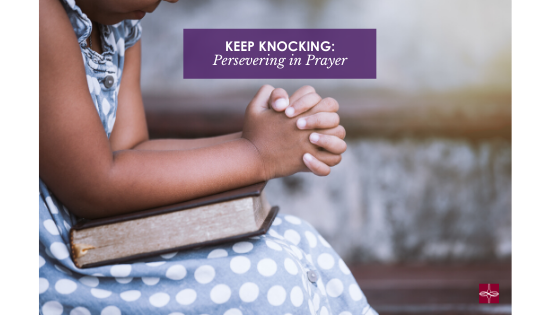

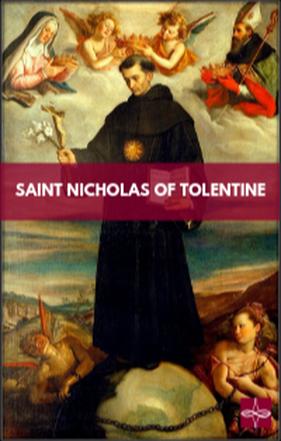

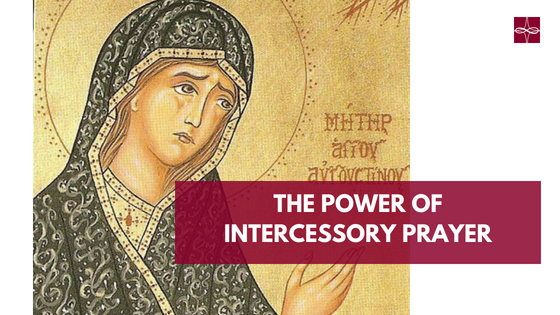

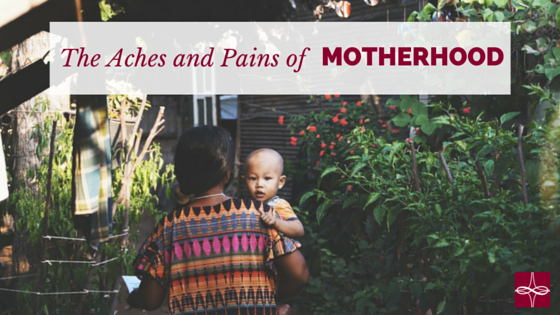



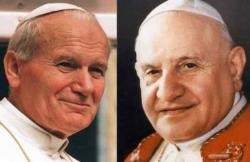
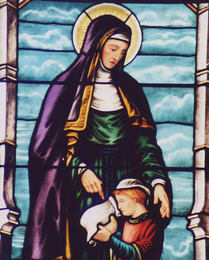
 RSS Feed
RSS Feed